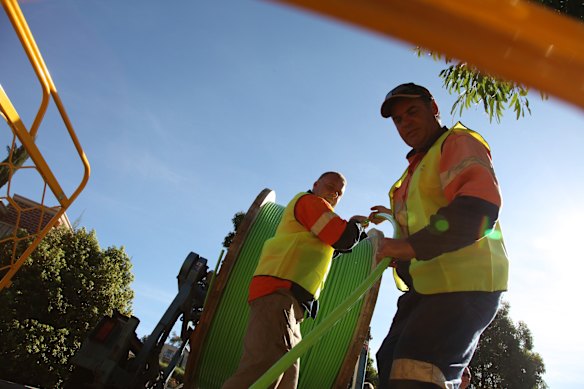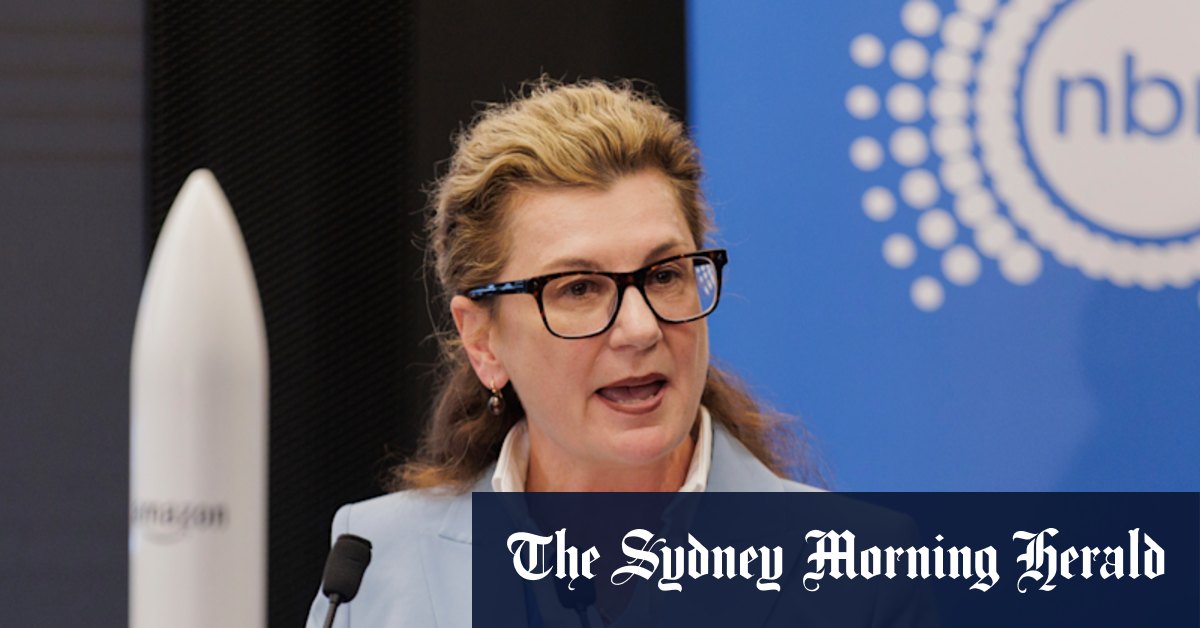
Before the election, the Albanese government pledged $3 billion worth of upgrades to “finish the NBN”. The speed upgrades are possible thanks to billions in funding from the federal government to upgrade the network from the previous Liberal government’s mixed technology model.
You do also need to make sure that your home broadband equipment can keep up. NBN recommends you update your modem about as often as you would your mobile phone, especially if it’s older than five years. Older routers with older technology, such as Wi-Fi 4, will be able to deliver speed of only about 100 megabits per second. If you want the best speeds, of up to 1000 megabits per second, consider upgrading to a router with Wi-Fi 6 or Wi-Fi 7.
If you have a larger home or areas with weak signal you should also consider using Wi-Fi extenders or mesh systems to help boost coverage. These tools – such as Eero, TP-Link DECO or Netgear Orbi – are now commonplace and could help eliminate dead zones and ensure a strong connection in every room.
How is it free?
Before the election, the Albanese government pledged $3 billion worth of upgrades to “finish the NBN”. The speed upgrades are possible thanks to billions of dollars in funding from the federal government to upgrade the network from the previous Liberal government’s mixed technology model. Former prime minister Tony Abbott once said 25 megabit NBN speeds would be “more than enough” for the average household: today, the download speeds possible will be 1000 megabits.
Loading
“Our existing investments in HFC and FTTP upgrades have laid a solid foundation for NBN to begin to unleash faster speeds and greater capacity, without NBN incurring or requiring any major additional capital investment,” an NBN Co spokesman previously said.
What are the benefits?
Users can expect far quicker downloads, more reliable Zoom calls, and streaming with less buffering.
For Australia as a whole, the nation can expect to quickly climb the global speed rankings, and to gain economic benefits associated with that.
Australia recently ranked a lowly 75 on Speedtest’s global speed rankings, one place above Uzbekistan and just below Oman, Nicaragua, Venezuela and Jamaica, with customers reporting an average of 88 megabits per second. Expect this number to jump as customers upgrade plans or automatically have their speeds bumped up.
Economic modelling from consulting giant Accenture, commissioned by NBN Co, found that for every 1 megabit per second in average broadband speed, Australia’s productivity-driven GDP rose by 0.04 per cent on average between 2012 and 2022, an uplift worth about $122 billion to the economy.
The Business Briefing newsletter delivers major stories, exclusive coverage and expert opinion. Sign up to get it every weekday morning.

